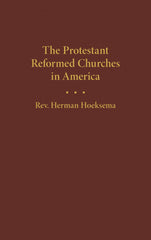Your cart is empty now.

Peter's Chastisement and Canons V: A Reminder
This series of blog posts was published from September 15, 2021 to October 11, 2021. It explains key sections of Canons Head V and applies them to the life and experience of Peter. We believe that our readers would profit from re-reading them. We include the links (hover and click on the blog titles) and a short excerpt from each blog post below.
1) Peter: Sinfully Deviating from the Guidance of Divine Grace
When we sin, we must not say, “Oh, I sinned because I was not so influenced and actuated by the grace of God. Therefore, my sin is justified.” God forbid that we should say that! When we sin, we must say, “I sinned because I sinfully deviated from the guidance of divine grace. I sinned because I was seduced by, and I complied with, the lusts of the flesh. I sinned because I neglected to watch and to pray that I might not be led into temptation. Therefore, I am guilty of sin, and I deserve the consequences of sin. In fact, I deserve to perish, and I would perish, but for the pardoning mercy and the rich grace of God.”
2) Peter: Losing the Sense of God's Favor for a Time
Of course! The light of God’s fatherly countenance did not shine upon Peter while he cried, “I swear by all that is good and holy that I do not know Jesus Christ.” God did not approve of Peter or give him a good conscience that everything was well with his soul while he insisted with great vehemence, “If I know this Jesus of Nazareth, may God curse me!” Oh, no, make no mistake about it—as far as Peter’s conscious life was concerned, Peter was guilty. As far as Peter’s conscious life was concerned, Peter did not know the forgiveness of sins, the blessedness of fellowship with God, and the assurance of eternal life. At that very moment Peter was not exercising faith in Jesus Christ—he had repudiated it ... Oh, the bitterness of sin! Oh, the misery of a guilty conscience! Oh, the misery of one who grieves the Holy Spirit! Do not provoke the Lord to chastise you, for he has many instruments with which to bring you to repentance and he knows exactly which rod to use to break your stubborn heart. Unlike an earthly father, he does not sob helplessly while his children go on in sin, but neither does he smile benignly. Instead, in love he applies the rod to bring us to repentance. And yet he never applies that rod, painful as it is, in his hatred, but always and only in his love. If you want to call the blows from the Father’s rod the experience of the Father’s favour and fellowship, the Canons do not: they call it the loss of the sense of God’s favour (Canons 5:5), which is “more bitter than death” (Canons 5:13).
3) Peter: Certainly and Effectually Renewed to Repentance
Something, therefore, happened to prevent Peter’s perdition, which “with respect to [Peter] [was] not only possible, but would undoubtedly [have happened]” (Canons 5:8). God worked in Peter the grace of repentance. Or God granted Peter the gift of repentance. Or Peter repented. Those three statements amount to the same thing. Two of them emphasize the activity of God in working, granting, giving, or conferring repentance, while the third emphasizes the activity of Peter who repented. “Man is himself rightly said to believe and repent by virtue of that grace received” (Canons 3-4.12) ... Canons 5:5 explains, “[They] sometimes lose the sense of God’s favor for a time, until, on their returning into the right way of serious repentance, the light of God’s fatherly countenance again shines upon them.” Whose returning? Not God’s returning, but their returning. Whose returning? Not Christ’s returning, but Peter’s returning. When is the sense of God’s favor restored? Not before they repent, but on their repenting. The Canons use the word “until.” God withholds, as chastisement, a sense of his favor from his sinning children until they repent ... Let others say, “The Lord never withdrew the sense of his favor from Peter.” The Canons contradict him. Let others say, “The Lord restored to Peter the sense of his favor before Peter repented.” The Canons contradict him. Let others complain, “You make Peter’s experience of covenant fellowship conditional on Peter’s activity!” I deny it, and I respond, “Either do justice to the Canons use of ‘until’ or stop pretending to believe the Canons of Dordt.” That God determined that Peter’s activity of repentance occurred before he restored to Peter the experience of his favor does not make it a condition for the same.
4) Peter: Much More Careful and Solicitous to Continue in the Ways of the Lord
Grace does not make a man passive. Grace makes a man diligent. When a child of God is graciously restored from melancholy falls and delivered from enormous sins, the result is not presumption, as if the child of God thinks that he can walk in the same sins again without God’s chastisement, but even more diligence: “more diligently.” And if he does again become presumptuous, such a child of God is simply provoking God to increase the blows of his rod, so that he “falls[s] into more grievous torments of conscience” (Canons 5:13). Who can contemplate that without trembling?
5) Peter: Maintaining an Assurance of Persevering
There are two possible responses from one who is restored after a period of backsliding, as Peter was. Ordinarily, as was Peter’s response, they are “much more careful and solicitous to continue in the ways of the Lord.” The Lord has ordained those ways, paths of godliness and obedience to his commandments, for this purpose: “which he hath ordained THAT (there is the purpose of God) they who walk in them may maintain an assurance of persevering.” God has joined together the maintenance of an assurance of persevering and walking in his ways. The one who walks in God’s ways in obedience, holiness, and good works, eschewing evil and living in godliness, maintains an assurance of persevering. The one who does not, but who walks in darkness, does not maintain, but loses (even forfeits), an assurance of persevering. God purposes that it should be so; and God’s purposes are good, holy, just, and wise.
The content of the article above is the sole responsibility of the article author. This article does not necessarily reflect the opinions and beliefs of the Reformed Free Publishing staff or Association, and the article author does not speak for the RFPA.

Donate
Your contributions make it possible for us to reach Christians in more markets and more lands around the world than ever before.
Select Frequency
Enter Amount










